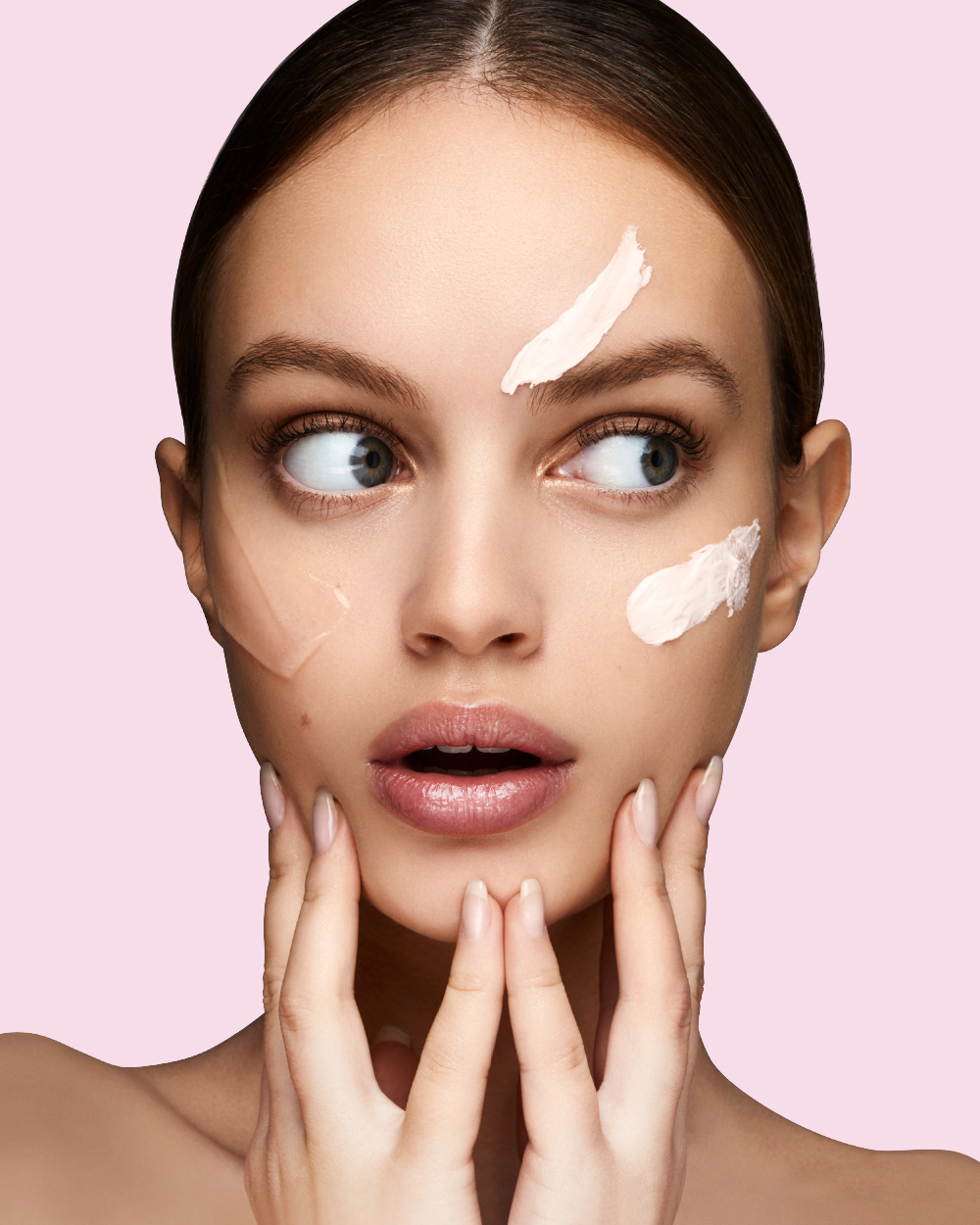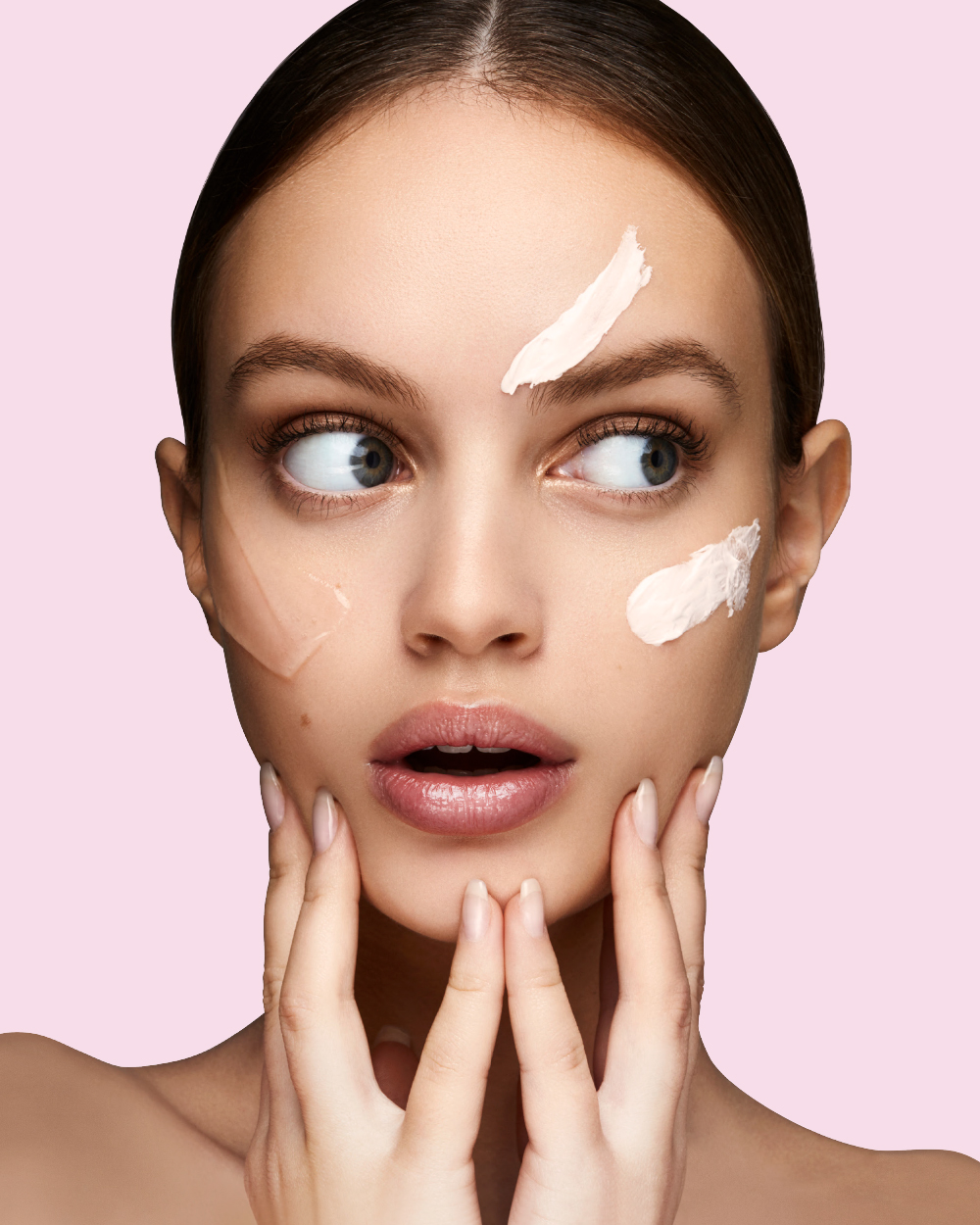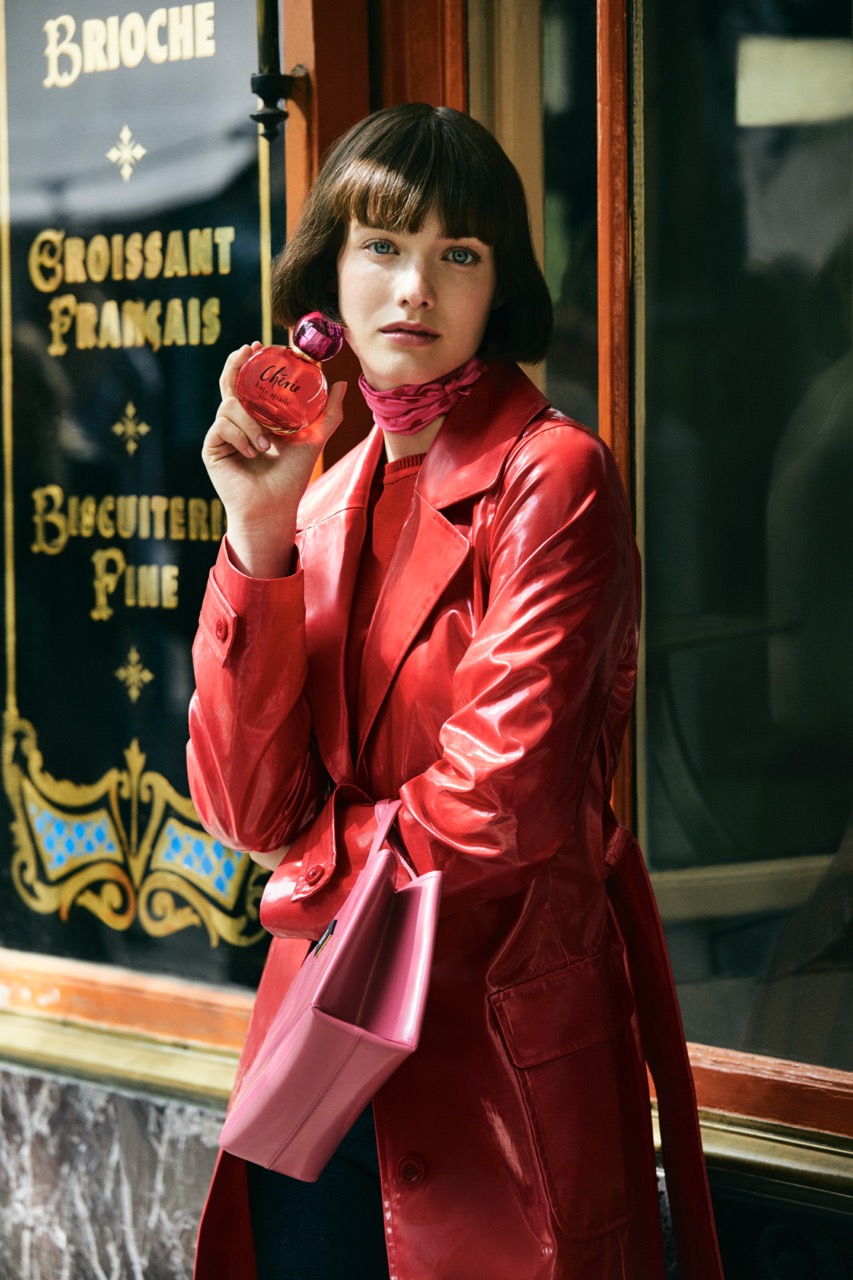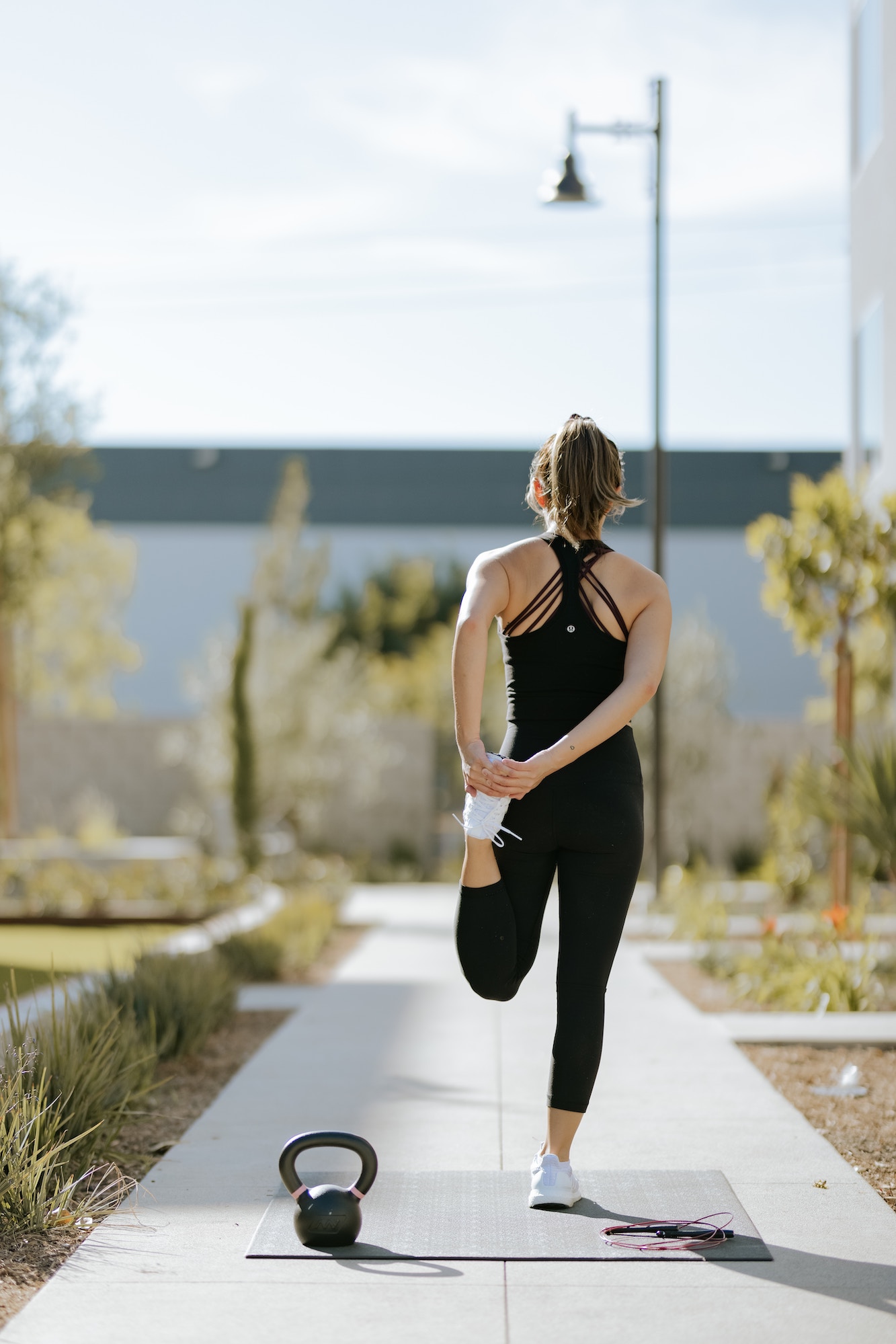Get your future looking bright (and tight). How to keep your skin in top shape now while future-proofing for tomorrow.
Ever wondered when you should start running interference on the skin-ageing process? How about when you were six to 12 months old? Yep, even before you could walk or talk, you’d ideally have been wearing a gentle sunscreen to protect that delicate skin.
But what if you’re still not using sunscreen, you’re a little lax with cleansing and you’re questioning WTF serum really does anyway?
Or maybe you’re good with a basic regime and double cleanse on the reg, but you’re considering what else you can do to nix that recurring acne. The good news is, it’s never too late to make a difference, and a little effort goes a long way. The first step? Some quality advice.
Read Next: Are You Making These Common Cleansing Mistakes?
BASIC SKINCARE AT HOME
With Megan Bedford, beauty editor at Miss FQ and Fashion Quarterly

There are so many products out there. What’s the bare minimum I should be using each day?
The only absolute non-negotiable is sunscreen. It’s not enough to just use a moisturiser or foundation with an SPF, broad-spectrum sunscreen is a must every day, as it protects from both UVA and UVB rays. UVA are the ones that cause ageing, UVB are responsible for burning and can cause skin cancer. Makes sense to protect from both, right?
Beyond that, what types of products you need is a matter of extremely variable opinion and also depends on your skin type. But if you want your skin to look as good as it can, as well as delay the visible effects of ageing, the basics would usually involve cleanser to remove surface dirt, makeup and dead skin cells; toner to soften, calm and prep skin for the other products you apply; and moisturiser.
Many women use a lighter moisturiser for day and a richer one in the evening for deeper hydration — but that’s up to you. An additional treatment product to address specific concerns such as acne, redness, hyperpigmentation or the first fine lines can also be beneficial, but isn’t essential.
What’s double cleansing? And is it okay to just use a makeup wipe?
Double cleansing refers to the practice of (surprise!) cleansing your face twice: once to remove makeup, sunscreen and oil, and again to go deep, removing accumulated impurities from your pores. Cleansing properly is going to make a big difference to the appearance of your skin now and over time, so although a wipe or a bit of micellar water on a cotton pad is acceptable occasionally, it’s not really going to cut it if you want to get the best from your skin.
What order should I apply products in?
A basic rule of thumb is that they should be applied in order of density. So thinner products such as toner and serum should go on before thicker ones like oils and SPF. If you’re keeping things simple, the order looks like this: cleanser, toner, moisturiser, SPF — then start your makeup routine. If you’re adding more products, particularly at night, try using them in this order: cleanser, toner, spot cream, treatment serum, eye cream, moisturiser, then face oil.
Wait, what? Do I really need eye cream and face oil?
The skin around the eyes is fragile, prone to dryness, works hard with thousands of movements every day and is quick to show fatigue. So although it’s easy to see eye cream as expensive moisturiser in a smaller jar, it does tend to be richer, with ingredients targeted to this area.
That said, using moisturiser there is fine too, just stick to a lighter one to avoid fluid retention that can cause bags. Face oils are usually plant-based and are great at providing extra hydration, particularly for very dry skin. Apply them to dry areas in addition to moisturiser, or all over your face in place of one.
I keep hearing the term ‘active skincare’ — what does it mean?
It means they contain active ingredients designed to have a specific effect on skin. For example, retinol (aka vitamin A) can speed cellular repair, make skin smoother and brighter, and treat acne too. Active ingredients can be very useful, but do read up on them as some can make you more susceptible to sun damage and other issues.
So, serum. A must, or not so much?
‘Serum’ is a catch-all term for a specialised treatment product, usually in a thin, fluid form, containing concentrated ingredients that are beneficial for a specific concern (dryness, fine lines, etc.) or just general skin health. They can go deeper than moisturisers, so are good at addressing many skin issues. If your skin’s in good health, they’re not strictly necessary, but they can deliver ingredients to maintain hydration and support the structure of your skin, which can help stave off signs of ageing.
What else is beneficial?
A gentle exfoliant will be all kinds of helpful. It used to be that physical exfoliants like abrasive grains and textured cloths were recommended, but skincare experts are now advising the use of more gentle acids, like alpha hydroxy acids (AHAs), for increasing cell turnover. They’re usually applied after cleansing.
And when should I start using ‘anti-ageing’ products?
Skin ages in two ways: the natural process that happens regardless, and when it’s subjected to stresses such as smoking, sun damage and pollution. In your 20s, you can always start with products that target the former, but it’s just as useful (if not more) to also avoid the latter.
WHEN TO VISIT A SKIN EXPERT
With Brandy Wehinger, clinical nurse educator at Caci

Why is it helpful for young women to visit a skincare professional?
Everybody’s different, so visiting an expert ensures you’re being recommended the most appropriate treatments and products for your skin. Home-care products are a great way to take care of yourself, but you might need a combination of active products and in-clinic treatments to target your concerns, for example, vitamin C skincare products coupled with VPL [variable pulsed light] to treat pigmentation.
Everyone can benefit from a consultation to find out more about how to maintain their skin’s health for many years to come. Those with ongoing skin issues, such as acne, acne scarring, sensitive skin and pigmentation will definitely benefit from expert advice. Our clients are often surprised to find out how easily theirskin issues can be helped.
What kinds of treatments are the most relevant for young women?
[Young women] often have beautiful skin, however, their active lifestyles can put stress on it. Caci offers treatments that target concerns and improve overall skin health. Microdermabrasion and sonophoresis [a treatment that uses sound waves to infuse product into the dermis of the skin] are examples of treatments that condition, strengthen and work to maintain beautiful skin. It’s not uncommon for women in their 20s to begin to develop lines, and to help prevent these from leaving deeper, more prominent lines as we age, a treatment such as Botox may help. Also, a more balanced appearance can be achieved using dermal filler for lip enhancement or adding volume to the cheeks.
But if you’re relatively happy with your skin, what will a visit achieve?
Following a regular skincare regime with a combination of treatments and products will help strengthen your skin and improve its overall health, and maintaining healthy skin in your younger years will help prevent signs of ageing and wrinkles as you get older. Plus, it’s important to do something that makes you feel good — because when you feel good, you look good.
What’s the best way to find a clinic or skin expert that works for you?
There are a lot of providers to choose from these days. My advice?
- Choose a clinic that’s reputable and has well-trained staff.
- You should always be asked to complete a medical form and offered a skin consultation. This is to ensure you’re suitable for the treatments, and don’t have any sensitivities or a medical condition that could impact your treatment options.
- The treatment options should be explained in detail and you should feel comfortable enough to ask questions.
- No two people are the same, so the clinic should tailor your treatments and skincare to your individual needs.
- It’s important that you’re comfortable. If you feel insecure or if they’re spending more time on criticisms than solutions, it might be wise to go somewhere where you feel more welcome.
Pros can be pricey, though. How much should we be spending on our skin?
Our skin is our interface with the world, and healthy, glowing skin makes us feel confident — it’s a universally desired attribute. Caci has payment plans that spread the cost over time, and can start from just $25 a week. Consultations are free and we’re happy for you to come in just to have a chat about your skin.
What are the pluses of following a home-care regime recommended by an expert, as opposed to just cherry-picking products off the shelf?
A professional will choose skincare that’s right for you and your skin type, improving your overall result.
How often should young women head to a clinic?
The timing really depends on your individual needs. If you want to improve your skin’s health and maintain its youthful appearance, a treatment once a month is often enough. If you’re planning for a special event, then a more targeted treatment plan might be needed to get you ready. This might mean coming in every other week for a couple of months, to achieve your desired results.
Clients with particular skin concerns, whether acne scarring, pigmentation or issues with skin texture, often start their plans with more frequent treatments, which aim to prepare their skin for more advanced treatments such as collagen induction — also known as dermal rolling — or VPL.
It’s a great idea to have a skin consultation a couple of times a year, as skin changes as we age, with the seasons, and as our lifestyles change too.
What would you like young women to know about choosing to visit a skincare clinic?
Our job is to make your skin healthy and to help you feel confident. It’s not about vanity. Skin confidence helps with almost every aspect of our life; if you’d like to improve your self-esteem or address a concern, you should come and visit us. Picking up the phone and booking a consultation is your first step to gaining skin confidence — it’s not that scary, and we can help.






